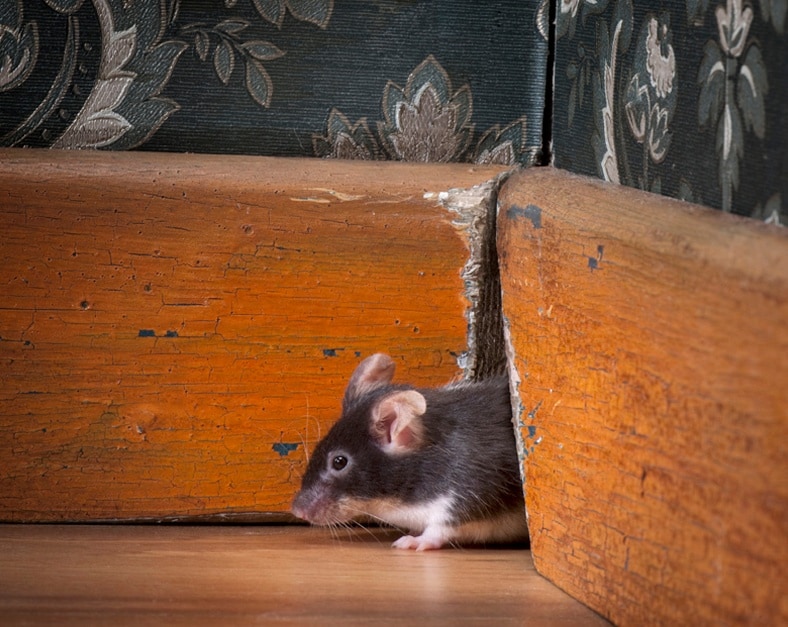Beware! The mice are moving in. With temperatures dropping around the country, mice and other rodents are looking for cozy places to spend the winter. If you think you’re seeing more mouse activity in your house it is not your imagination, there are most likely more mice in your house than there were in the summer.
Most mice live outdoors in the warmer months. Bushes, trees, grass and hollowed out branches offer good shelter and food, like berries, seeds, and nuts, is plentiful. But as it gets colder and food is more difficult to find, mice start moving indoors. Houses, garages, sheds and other buildings provide shelter from the elements and warm, secure spaces to nest, as well as good access to food and water.
With the onset of winter, it is important to be on the lookout for mouse activity in your Bowmanville home. The first signs are likely to be mouse droppings, gnawed food packages and nocturnal scurrying noises coming from your walls and ceilings. You might also notice food and material hoarded in dark corners and behind washers and dryers.
If you see any of these signs you need to act immediately. Mice breed at an alarming rate and mate throughout the year, producing up to 10 litters of 5-6 young annually. Breeding peaks in the fall and since mice take about a month to reach maturity, once winter arrives, there are large populations of newly adult mice looking for warm, safe places to nest. If the mice make it into your home, they will produce broods that are then able to reproduce within a month. This means that a very small number of mice left unchecked can escalate into a huge infestation in no time at all.
Mice can also cause a lot of damage to your property. They can gnaw through electrical wires and turn your home into a fire hazard. They also eat your food and contaminate your house. In just six months, two mice can consume four pounds of food and leave 18000 droppings.
If you are serious about avoiding a mouse infestation, you need to call in a professional to implement an animal control strategy that will rid your house of mice and, just as importantly, keep them out. This is the most humane way to control rodents and ensure that your home remains free of infestations year round.
Winter is considered rodent season. Mice especially look indoors for warmth.
What a professional animal control company will do for you.
- An expert will be able to identify all potential entry points – like cracks in walls and foundations, damaged roofs and spaces around vents, wires, pipes, windows, and doors. Remember a mouse only needs a tiny crack to get into your home.
- Once they have identified these entry points they will block them with suitable material like wire mesh, wood or spray foam insulation.
- They can also place weather stripping around your doors and windows, and install chimney caps and vent covers.
Unfortunately, this is not a once off exercise and needs to be carried out every year. Low temperatures cause building materials to contract and this creates cracks, crevices, and holes that may not have been there before, making it easier for mice to get into your house when it’s cold.
What you need to do
Once the expert has taken care of your mouse problem, you can also follow certain steps to keep the mice at bay and reduce the number of places they can nest close to your home.
- Keep compost, garden waste, mulch, and wood piles as far from your house as possible.
- Keep your yard clean, tidy and free of trash – mice love making their nests in messy places.
- Repair any damage to your property, like cracks and holes, as soon as possible.
If you suspect you have a mouse problem in your Bowmanville home, it is essential to call in animal control experts, like Skedaddle Humane Wildlife Control, immediately.



